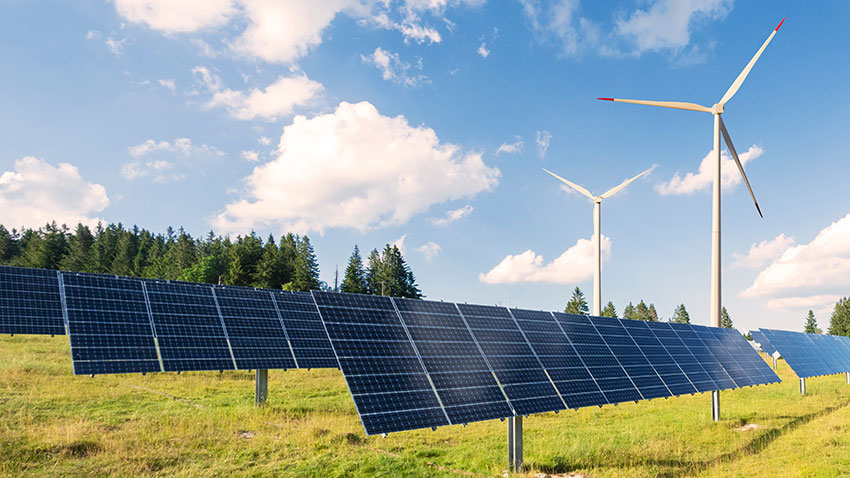Clear power funds, as soon as a favorite within the funding belief panorama, are poised for a resurgence as decrease rates of interest reignite investor curiosity.
After years of excessive premiums and booming demand pushed by environmental, social, and governance (ESG) issues, the sector has confronted headwinds from rising charges and easing energy costs. Nonetheless, with the Financial institution of England lately reducing rates of interest for the primary time in over 4 years, and additional cuts anticipated in 2024, optimism is returning.
In accordance with information from the Affiliation of Funding Trusts, clear power funds traded at vital premiums to their web asset values (NAV) as lately as 2020. For instance, Greencoat UK Wind, the most important clear energy funding belief, raised over £1 billion in fairness throughout 2020 and 2021, nearly a 3rd of its inventory market worth. However at the moment, the fund and its friends are buying and selling at reductions, reflecting the broader market’s retreat from the £15.5 billion sector amid greater rates of interest and softer power costs.
James Wallace, an analyst at Winterflood, believes the current fee cuts might assist slender these reductions, although the impression may take time to materialise absolutely. “We expect that these rate of interest cuts will slender this hole, at the least considerably by way of reductions, due to the decrease required returns demanded by these buyers,” he mentioned. Nonetheless, Wallace cautioned that substantial cuts—probably as much as 75 foundation factors—could also be wanted to see a significant impression on valuations.
Nonetheless, questions stay about whether or not inexperienced power funds can reclaim the excessive premiums of the previous with no return to the ultra-low rates of interest seen pre-2020. Ben Newell, an analyst at Investec, famous, “It’s possible that these corporations commerce at or round NAV, however except you’ve bought the charges we noticed pre-2020, they’re not going to commerce on 10 to twenty per cent premiums to e book worth.”
The challenges aren’t confined to rates of interest. London’s rising battery storage sector, together with funds like Gresham Home Power Storage and Gore Avenue Power Storage Fund, faces scrutiny over unstable cashflows, with share costs buying and selling between 45 and 55 per cent beneath their NAVs. In contrast to wind or photo voltaic property, battery storage revenues depend upon fluctuating wholesale energy costs, including a layer of threat that buyers have been hesitant to embrace.
Paul Mason, Chief Funding Officer at Concord Power, highlighted the unpredictability of revenues from battery property as a key issue within the present market low cost. Current declines in power costs have additional pressured these funds, main some, akin to Concord and Gresham, to scrap dividends for the yr. Max Slade of Concord Power mirrored on the lesson realized, stating, “The lesson we’ve learnt has been that taking an asset class that has [an unpredictable] service provider income profile and making an attempt to pledge a set degree of dividend will not be all the time deliverable.”
Moreover, the waning enthusiasm for ESG methods throughout financial downturns has affected inexperienced infrastructure funds. Final yr, ESG funds noticed vital withdrawals from British buyers, though flows have improved this yr. “Throughout a price of dwelling disaster and when issues are a bit slower within the economic system, the main focus could be a bit extra on the economics and making returns,” Wallace famous.
The current dip in share costs beneath NAV has hindered renewables funding trusts from elevating new fairness, constricting a significant funding supply for future initiatives. The Renewables Infrastructure Group (Trig), one of many largest trusts within the sector, has responded by managing its steadiness sheet rigorously, together with promoting £210 million in property to cut back debt and fund new developments.
With the UK authorities setting bold targets to increase wind and photo voltaic capability by the tip of the last decade, the function of personal capital stays essential. Nonetheless, as Alex O’Cinneide, CEO of Gore Avenue Capital, identified, the constriction of capital entry poses a big problem: “There’s a really massive concern there about what it means by way of a brand new authorities, by way of the build-out of our renewables infrastructure, {that a} important avenue for personal capital to enter renewables within the UK is intrinsically shut.”
Because the sector appears to get well, all eyes will likely be on additional rate of interest changes and their potential to revitalise investor confidence within the inexperienced power area.


